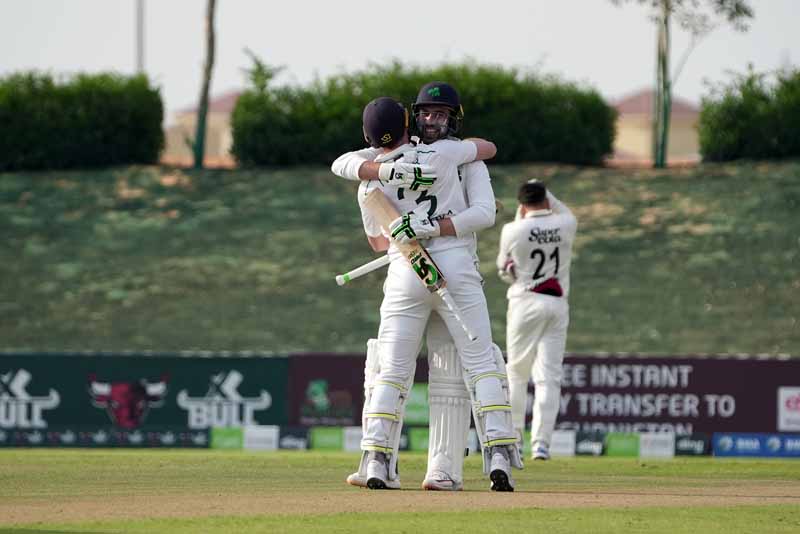Andrew Balbirnie had a broad grin on Friday as he gave a post-match interview in Abu Dhabi. His Ireland team had just won its first Test, he had played a decisive innings, and he looked spent by his efforts.
But still he reflected on what beating Afghanistan meant to him and his team: “There’s a lot of talk in world cricket at the moment about the relevance of Test cricket, but you ask this whole group about how special this is, and it’s right up there.
“A lot of players before us didn’t get the chance to play Test cricket. Fortunately, we’re part of that history now.”

The players must get huge credit for a thoroughly committed performance but this was not a victory that Irish cricket as a whole deserved.
Firstly, you don’t mess with the gods of any sport: players that don’t train or practice enough are invariably found out, and rightly so. And Ireland don’t play Test cricket enough, and don’t practice for it.
The interprovincial three-day competition, set up to prepare Irish players for the ultimate format, was last played in August 2019. Shelved during Covid, it has yet to return and there are no plans for it to do so in 2024.
Costs are cited by Cricket Ireland as the reason for eschewing the Championship, but its absence has doomed a generation of young players hoping to find a path from weekend club games to an Ireland Test side.
It means players must learn on the hoof in the most testing arena. In 2,500 matches since 1900, only six men had made their first-class debuts in a Test before Ireland added two more last April. Those two young spinners performed just as you would expect and have since been discarded.
It worked for some, of course, even those who missed out on playing English county cricket. The man who hit the winning runs on Friday, Lorcan Tucker, told me last year: ‘Harry Tector, Josh Little and I started around the same time in international cricket. It was hard to step up from club and interpro, the gulf was huge. Guys who go through the county system adapt quicker. It took a lot longer for us to get to the level of international cricket. My first 30, 40 games I didn’t know what I was doing. That was our school – I failed a lot, it was tough.’
While some rookies sink, others swim: Ireland blooded three new bowlers this week, all thirty-somethings. That extra experience allowed ex-county players Barry McCarthy and Craig Young to play a full part in the victory.
Balbirnie said the win in Abu Dhabi was ‘right up there’ in his career highlights, but the captain is not on the same wavelength as Cricket Ireland. The governing body seems ambivalent to Tests, as suggested by performance director Richard Holdsworth when he labelled last year’s Lord’s match as ‘not a pinnacle event’. Head coach Heinrich Malan was given leave to miss two Tests on last year’s tour, while key players such as Paul Stirling have been rested at times. Last April, Balbirnie had to insist on playing when an attempt was made to rest him for a Test.
The notion of resting players who play so little anyway is bizarre. Since the 2019 Lord’s test, England’s then-captain Joe Root has played 58 tests – Ireland have played five.
So Ireland’s heroes this week will have to savour the rare, unique rhythms of multiday cricket. Again, there will be no red-ball interpros this summer, and as of now, the only three-day match scheduled – as it has been for several years – is the annual fixture between Trinity and MCC.
And then, in late July, the Irish squad will represent their country in the toughest format. They will inevitably go into the game undercooked and underprepared. Should Balbirnie, Tucker, Mark Adair and company conjure another miracle when Zimbabwe come to Belfast, it will be because they are a proud, talented bunch of men, battling on and off the field to make their Test dreams come true.